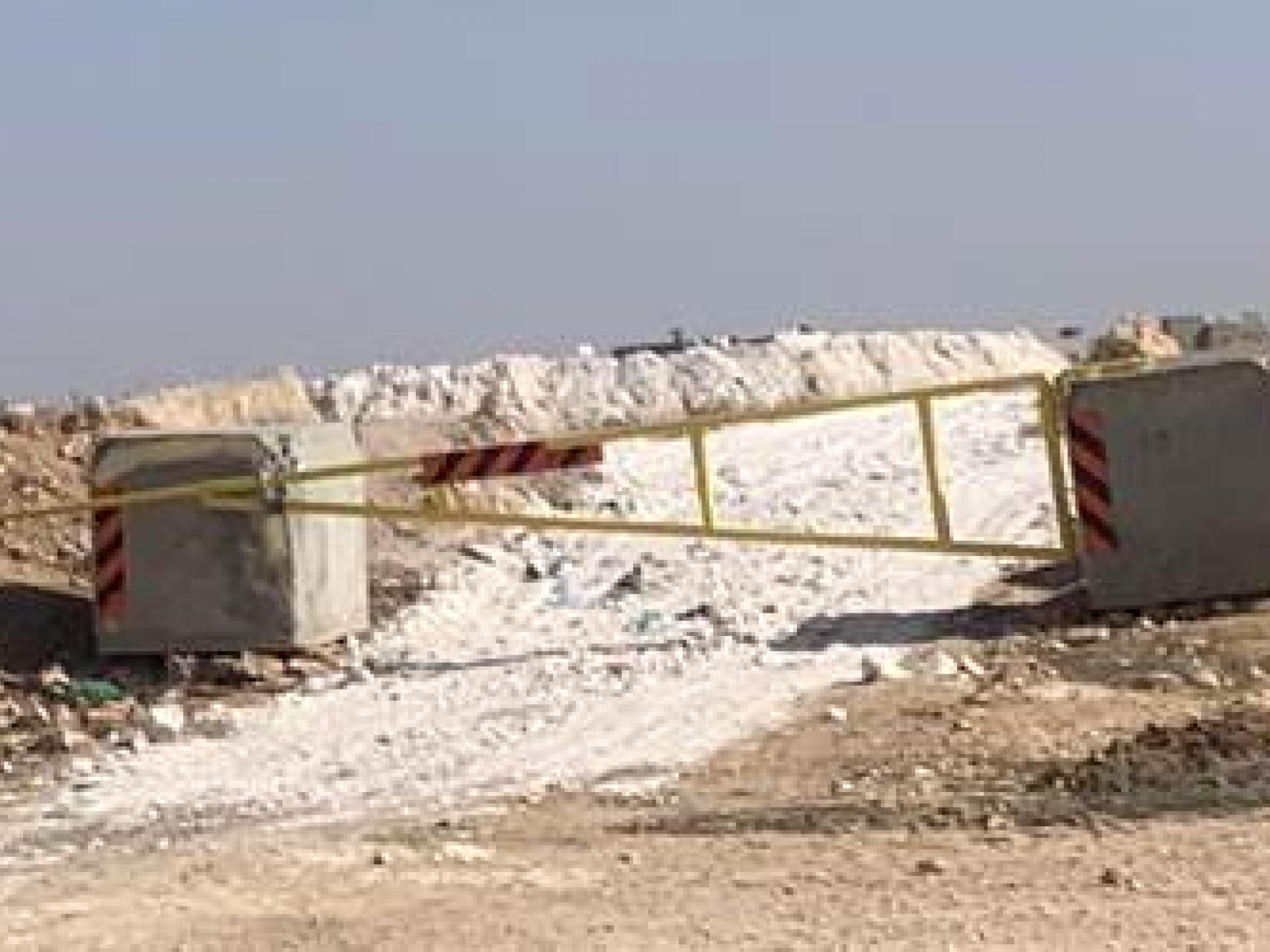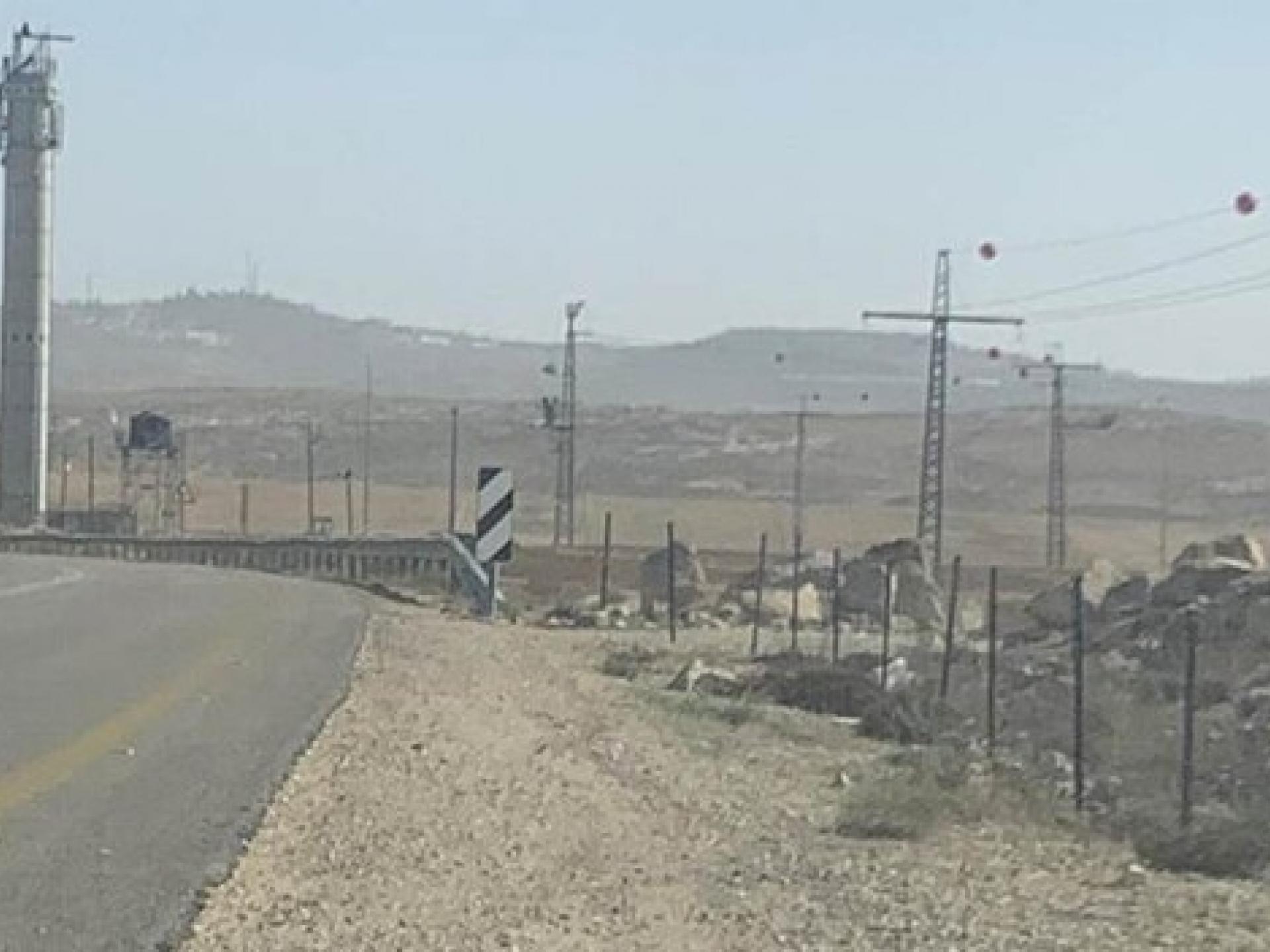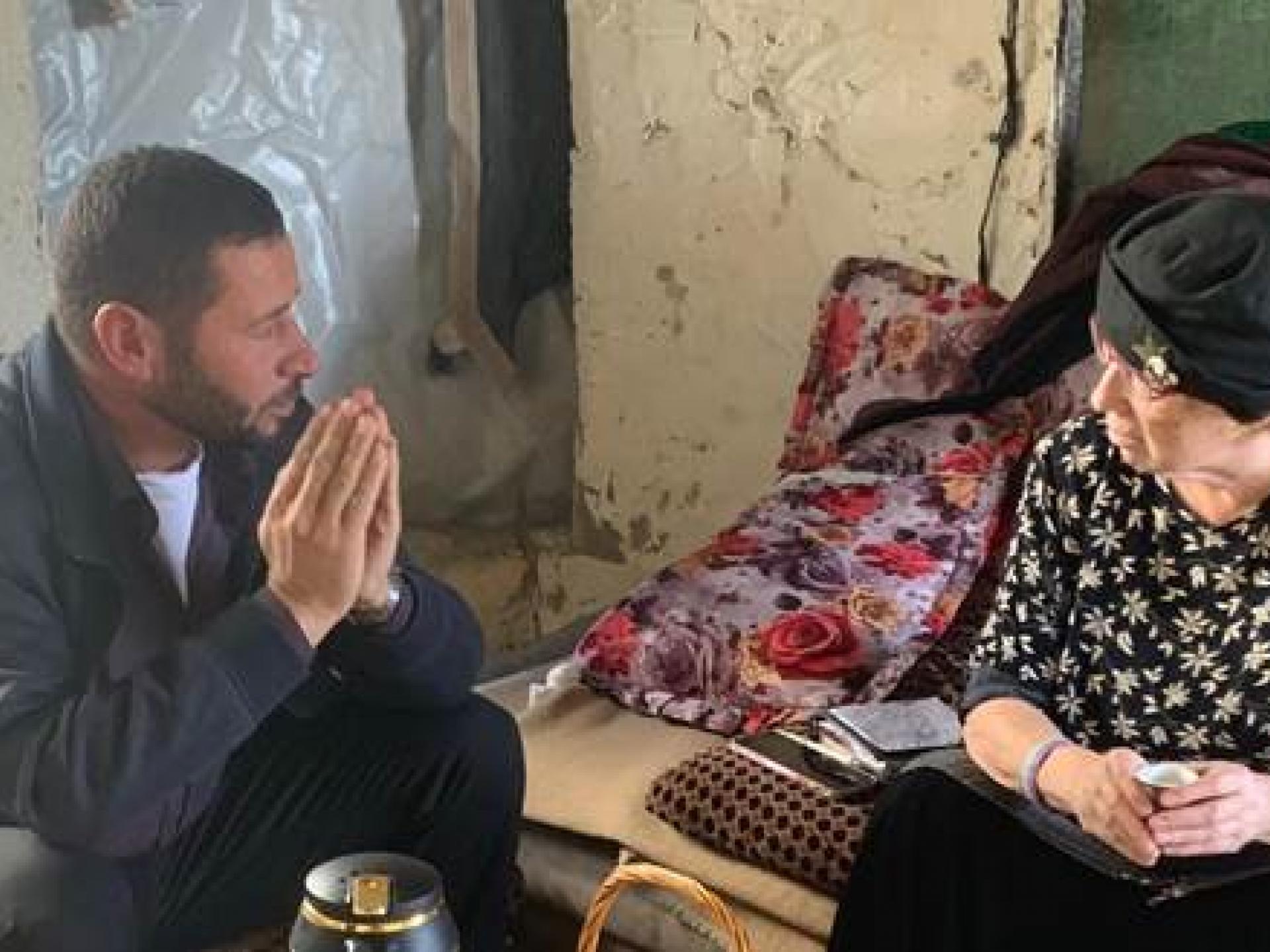South Hebron Hills: Palestinians plowing their land are chased by the settlers' "army"

1. Meitar Crossing. The water flowing in the wadi from Mount Hebron to the nearby water purification plant smells quite foul. We observed about 30 workers who have just moved into Israel. Muhammad explains that this week workers started going to essential factories when the Israeli employers take responsibility for them, with a special permit (not the usual permits to work in Israel). For example, Musa Madura, who works in the Yavneh area, told him that Route 60 is blocked for Palestinians to cross, so they only pass through Dahariya/Ramadin, a much longer journey. The workers do not leave through the normal passage for workers, but through the exit for Israelis, but there they go through a strict security check.
2. On road 317, you can see the upgrading of passage blockage from Samua to the villages east of the road: on the Samua side, a new barrier, and on the villages side - a new fence to prevent those driven out from returning to their lands, right in front of the pillbox that faces Shani (Livne). On the hill to the east are work vehicles of settlers, after the ethnic cleansing around Asa’el they are completing the takeover of the lands.
3. Sha'b al Butum east of the road: the Palestinians are plowing, driven out by the "army" - the group of vehicles near the road is the “HQ” of their army and the "soldiers" physically prevent the Palestinians from plowing:
When I get out of the car and take a picture, one of them approaches me to find out why I stopped here, and demands that I leave. I tell him: you are in an army uniform but the mask on your face indicates that you are not an IDF soldier but a settler.
4. In front of the entrance to Avigayil, Palestinians are plowing with a donkey, afraid to bring tractors:
Muhammad tells of years when Fadel and Yishak Jabarin were chased away when they went out to plow. Mohammed tries in vain to get hold of Yishak, who may be hiding the cell phone now for fear of the settlers confiscating the phone. This year's olive crop has already been lost because the settlers prevented the harvest, now they are destroying next year's field crop because they are preventing the plowing.
5. In at-Tuwani we meet a volunteer of Breaking the Silence who accompanies a French television crew that records everything we document here - the France 5 network. The program is called en societe (in society) and is broadcast on Sundays at 6:40 p.m., for the information of your relatives and acquaintances in France.
6. At Nasser's. We are happy to meet his son Salem, today he had a son at Yatta Hospital (his baby son died a year ago). Salem worked in Israel until the war in road infrastructure, but it is not defined as essential work, so he is now unemployed.
son died a year ago). Salem worked in Israel until the war in road infrastructure, but it is not defined as essential work, so he is now unemployed.
7. Nasser updates us on the ongoing saga of the settler Issachar, from the new farm near Ma'on. Yesterday he went out on an ATV to bully as usual, with his face covered. This time the 15-year-old boy Issa from Umm Tuba was beaten and his phone taken, while threatening to kill him as well as his mother and sisters. The family left their home and left everything, they went to the neighbors, they were afraid that the settlers would come at night and burn everything.
8. In an attempt to protect the lands adjacent to the Ma'on farm, between Fuqra and Tuwani, the villagers built a protective wall of stones there. Yesterday a settler arrived with a large van and while driving backwards he knocked the stone fence onto trees that were destroyed by this, he was unable to lift the large rocks. The village's youth that was on watch duty there filmed the event. They were afraid to approach lest the settler shoot at them. They called the police who sent the army to look for him but he ran away, hiding the vehicle behind a haystack of a Ma'on farm. The army and the civil administration saw the vehicle entering the farm, went in and took it out. He claimed that he was on his way to Avigayil, and that the injuries behind the vehicle were not from the demolition of the fence but from an accident he had. The Palestinians handed over the video they took to the police, and at the request of the police, today three (including Naim, Nasser's brother) went to the Kiryat Arba police to file a complaint. Nasser says that in this case the police acted properly.
saw the vehicle entering the farm, went in and took it out. He claimed that he was on his way to Avigayil, and that the injuries behind the vehicle were not from the demolition of the fence but from an accident he had. The Palestinians handed over the video they took to the police, and at the request of the police, today three (including Naim, Nasser's brother) went to the Kiryat Arba police to file a complaint. Nasser says that in this case the police acted properly.
9. Nasser says that the situation is better in Tuwani - they have water and electricity... Although here too they only harvested the olives in the middle of the village, it is impossible to harvest near settlements. There is an ethnic cleansing of all the surrounding small villages in Masafer Yatta, including Jemba, Geiga. They pin their hopes on the pressure exerted by various organizations on Israel.
10. In front of Tawani, the roadblock to Yatta was strengthened, large piles of dirt were added in addition to large blocks of concrete. Doctors and teachers cannot pass.
11. We turn right from the road, towards Susiya. On the right, it seems that the settlers are setting up a position, perhaps raising an existing position, which will command over the intersection, overlooking those entering and leaving Susiya. When they see us they stop and take pictures, throw stones in our direction but we are far enough away from them. Piles of dirt block the access of the residents of Susiya to their land with tractors, and as the entrance to the village is also blocked by large rocks, we are forced to park near the rocks and advance into the village on foot.
12. A visit to Azzam (his Hebrew is excellent!) and his wife Wadha (the meaning of the name: something clear and bright). The television is on, a report by the Al Jazeera network on the destruction in the Gaza Strip, and the conversation turns to criticism of the war. I buy olive oil, labneh, za'atar.
13. Today Ta'ayush volunteers together with locals who watered olives near ancient Susyia, were expelled on the grounds that it was a "closed military area". The settlers destroy their fields. Yesterday at noon the police were called and they removed the settlers, but they returned at night and then the police did nothing.



